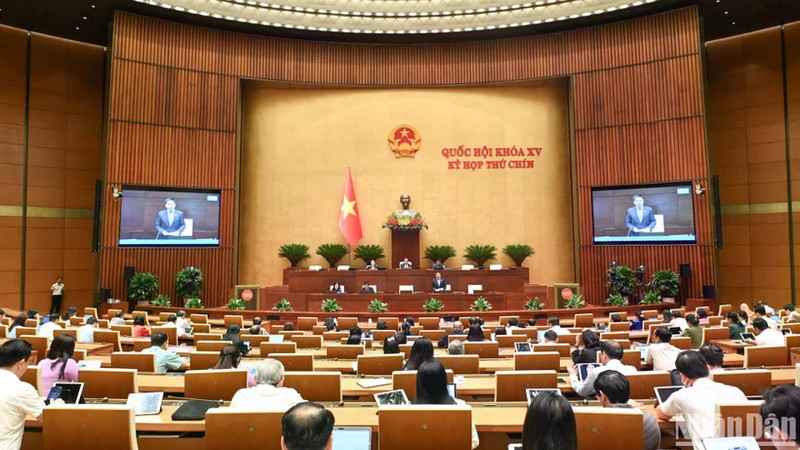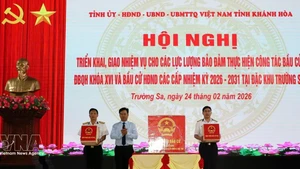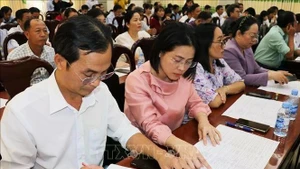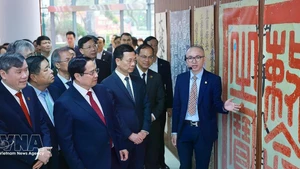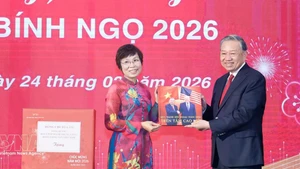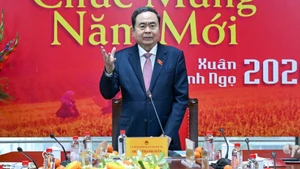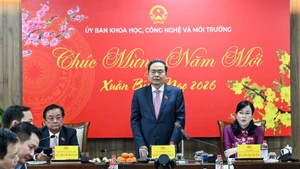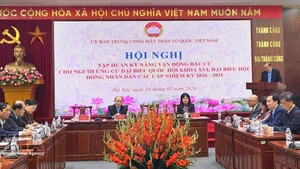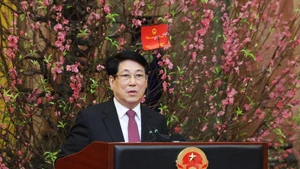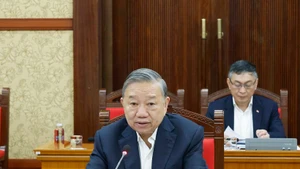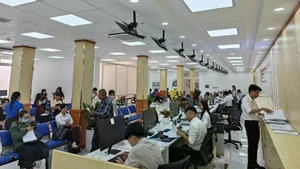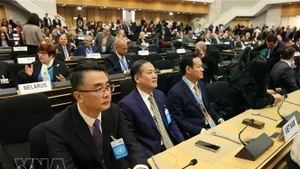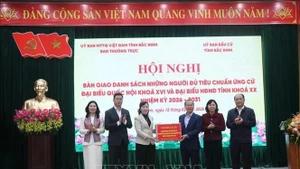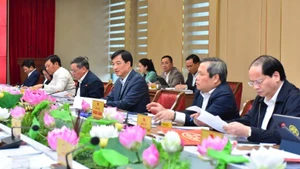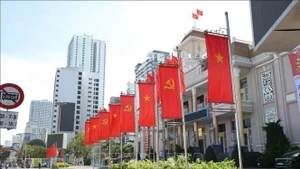This shows that institutional and legal reform is an urgent requirement and the key to removing bottlenecks, promoting economic recovery and growth.
Removing bottlenecks with breakthrough thinking
The delegates agreed that many shortcomings and bottlenecks in the implementation of public investment projects, PPPs or contractor selection... are clearly shown in cumbersome administrative procedures, overlapping legal systems, lack of transparency in decentralisation and delegation, causing the implementing agencies to be confused, passive, wasting resources, and reducing the efficiency of public investment.
Delegate Tran Van Tien (Vinh Phuc Delegation) pointed out the unclear points in the regulations on investment authority at the commune level, leading to unnecessary complexity in deciding on inter-commune projects. Meanwhile, delegate Nguyen Huu Thong (Binh Thuan Delegation) warned about the lack of consistency between the right to autonomous procurement and the mandatory bidding regulations in the Bidding Law, which can easily lead to legal gaps.
Regarding this draft law amending many laws, the majority of opinions agree with the direction of amendment to decentralise and simplify the process of appraisal and decision on investment policies. The clear regulation of authorisation and authority, especially at the commune level as proposed by delegates Nguyen Tam Hung (Ba Ria-Vung Tau Delegation) and Tran Van Tien, is considered a step forward to avoid stagnation and evasion of responsibility; however, some delegates also noted that decentralisation needs to be accompanied by strict conditions and monitoring mechanisms to avoid abuse of power and loss.
The bidding sector has been a “hot spot” for many years and has been the focus of careful discussion among delegates. Believing that many current regulations are “too complicated, formalistic and do not distinguish between specific industries”, delegate Nguyen Quang Huan (Binh Duong Delegation) suggested “temporarily suspending the application of the Bidding Law” to redesign it for substance, because currently “one law for all” is causing too much trouble, especially in areas such as healthcare and public services.
PPP and public investment - binding but flexible mechanisms
In the PPP sector, delegates Nguyen Thi Thu Ha (Quang Ninh Delegation) and Nguyen Quang Huan (Binh Duong Delegation) supported the reduction of the approval process to facilitate private investors, and proposed to establish clearer criteria for risk sharing, technology transfer commitments, and ensuring harmonious public-private interests.
Ha proposed to develop principles for sharing costs, revenues or risks, in which private investors have the right to adjust financial plans based on business models, while the State is responsible for creating a transparent and fair legal corridor.
Some delegates commented on the revenue-sharing mechanism in PPP contracts. The law currently stipulates the appointment of contractors in cases of ensuring national security, people's health, natural disasters, and enemy attacks. Delegate Nguyen Quoc Binh (Hanoi Delegation) proposed to add more clarity: Any bidding package that is more urgent than the average processing time of three to four months must be appointed. If time is not attached to the definition of “urgent”, the selection of contractors will not be handled in time.
Following the major decisions of the National Assembly at this session, Nguyen Trong Khang expressed his honour to be one of the private enterprises participating in the exhibition on achievements in private economic development and booths displaying products of private enterprises.
MK Group, established in 1999, is among the high-tech enterprises specialising in providing digital security authentication solutions and smart cards. The Group owns core technologies in digital security, smart cards, biometrics, serving industries such as finance-banking, public transport, e-government and national security and defence.
Talking with Nhan Dan Newspaper reporters, he expressed that the business community is looking forward to and is very excited about the correct and timely orientation of the Party and State in Resolutions No. 57-NQ/TW, 59-NQ/TW, No. 66-NQ/TW and No. 68-NQ/TW, especially the resolution affirming the driving role of the private economy in the cause of independent, autonomous and prosperous economic development. He and the pioneering enterprises hope to continue to receive attention and support from the Government to participate, test and coordinate the implementation of defence industry technology solutions and national digital infrastructure.
Regarding the major issues of amending and supplementing several articles of seven important laws related to public investment, bidding, tariffs, public asset management and public-private partnership that were thoroughly discussed by the National Assembly, he and many businesses boldly proposed: Core technologies and cutting-edge technologies need to be recognised as national-level scientific and technological products, copyrighted and ordered for production.
Looking forward to and believing that the major decisions passed by the National Assembly with the spirit of innovation in legislative thinking will soon be realised and put into practice, many National Assembly deputies, Mr Khang and many businesses suggested that there should be a "breakthrough" in bidding mechanisms suitable for new technology fields, "avoiding the situation of putting advanced products into old and outdated bidding documents".
The National Assembly’s fundamental consideration and consensus on the policy of amending the law towards flexible bidding mechanisms, especially for new technology products and services, is a clear demonstration of the spirit of breakthrough reform, not mechanical stereotypes. The business community and voters acknowledge and evaluate this as a timely step to improve national competitiveness in the context of digital transformation and the strong trend of technology development.
From the National Assembly forum, at the end of the first session of this session, an important and clear message was sent out: innovation in legislative thinking is not only about improving legal techniques, but also demonstrated by decisive political action to create leverage for economic recovery and unleash new growth drivers. That marks the beginning, a major turning point for a legislative cycle towards greater practicality, efficiency and adaptation to current events.
